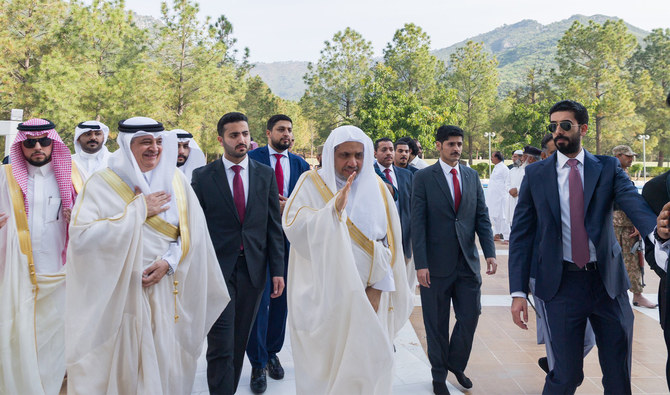ISLAMABAD: Dr. Mohammad bin Abdulkarim Al-Issa, the secretary-general of the Muslim World League (MWL), on Wednesday delivered the Eid Al-Fitr sermon at the Shah Faisal Mosque in the Pakistani federal capital of Islamabad.
Dr. Al-Issa arrived in Islamabad late Sunday night on a nine-day trip aimed at fostering interfaith harmony and strengthening Saudi Arabia’s bilateral relations with Pakistan.
The MWL is a Makkah-based non-governmental organization that represents followers of Islam around the world.
“At this time and in response to an invitation received from the Prime Minister of Pakistan: Secretary General, President of the Organization of Muslim Scholars, Sheikh #MohammedAlissa delivers the official Eid El Fitr sermon of the Islamic Republic of Pakistan, at King Faisal Grand Mosque in Islamabad,” the MWL said on X.
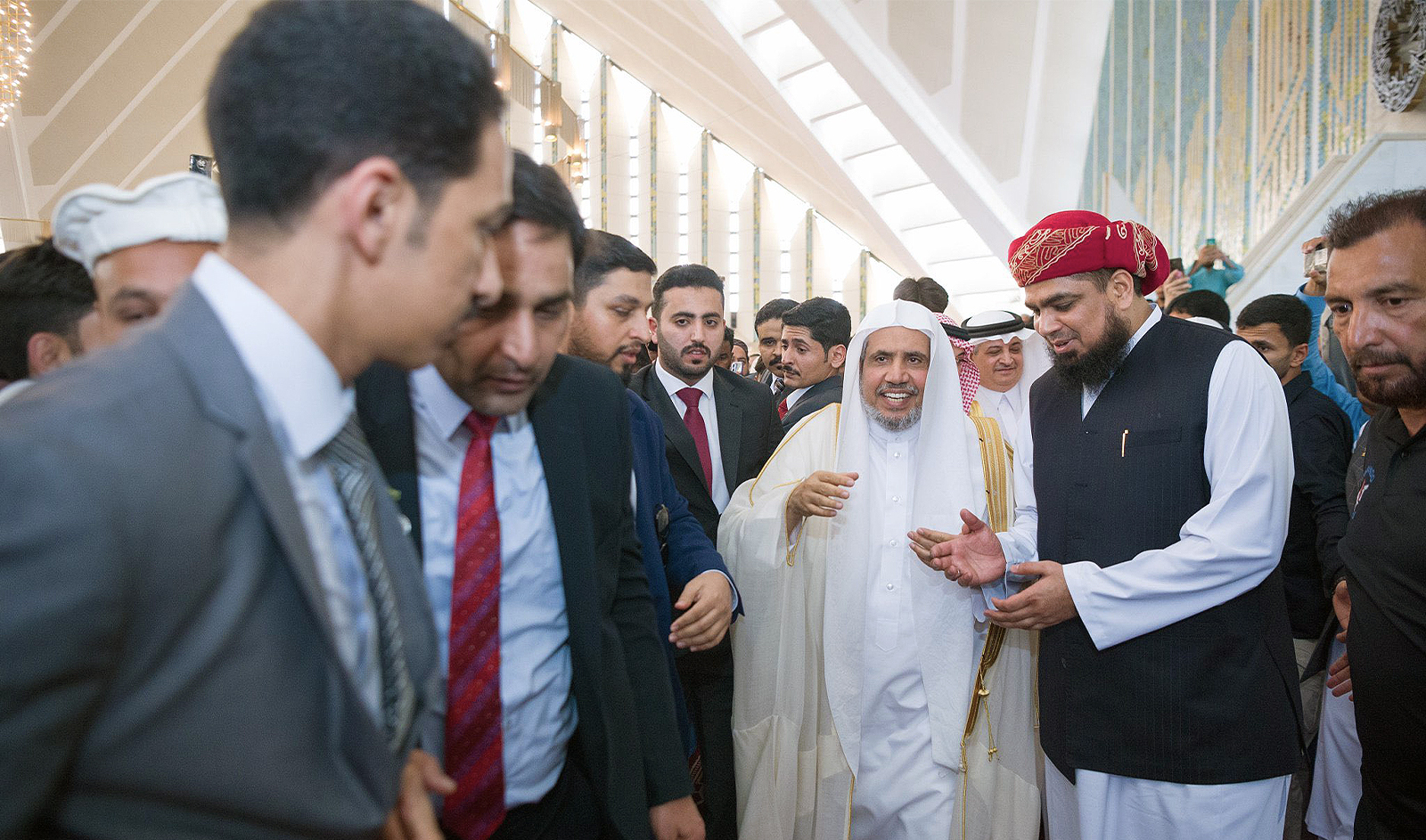
Dr. Mohammad bin Abdulkarim Al-Issa (center), the secretary-general of the Muslim World League (MWL), arrives at Islamabad’s iconic Faisal Mosque to deliver official Eid Al-Fitr sermon in Islamabad, Pakistan on April 10, 2024. (@MWLOrg_Fr/X)
During the sermon, Al-Issa called on Muslims to keep Palestinians close to their hearts and in their prayers as they celebrated Eid.
“As we rejoice in this joyous celebration, we do not forget the tragedy of our brothers in Gaza, afflicted by the aggression and arrogance. May the Almighty give a favorable outcome to their trials, may the crimes that have been committed turn against those who committed them.”
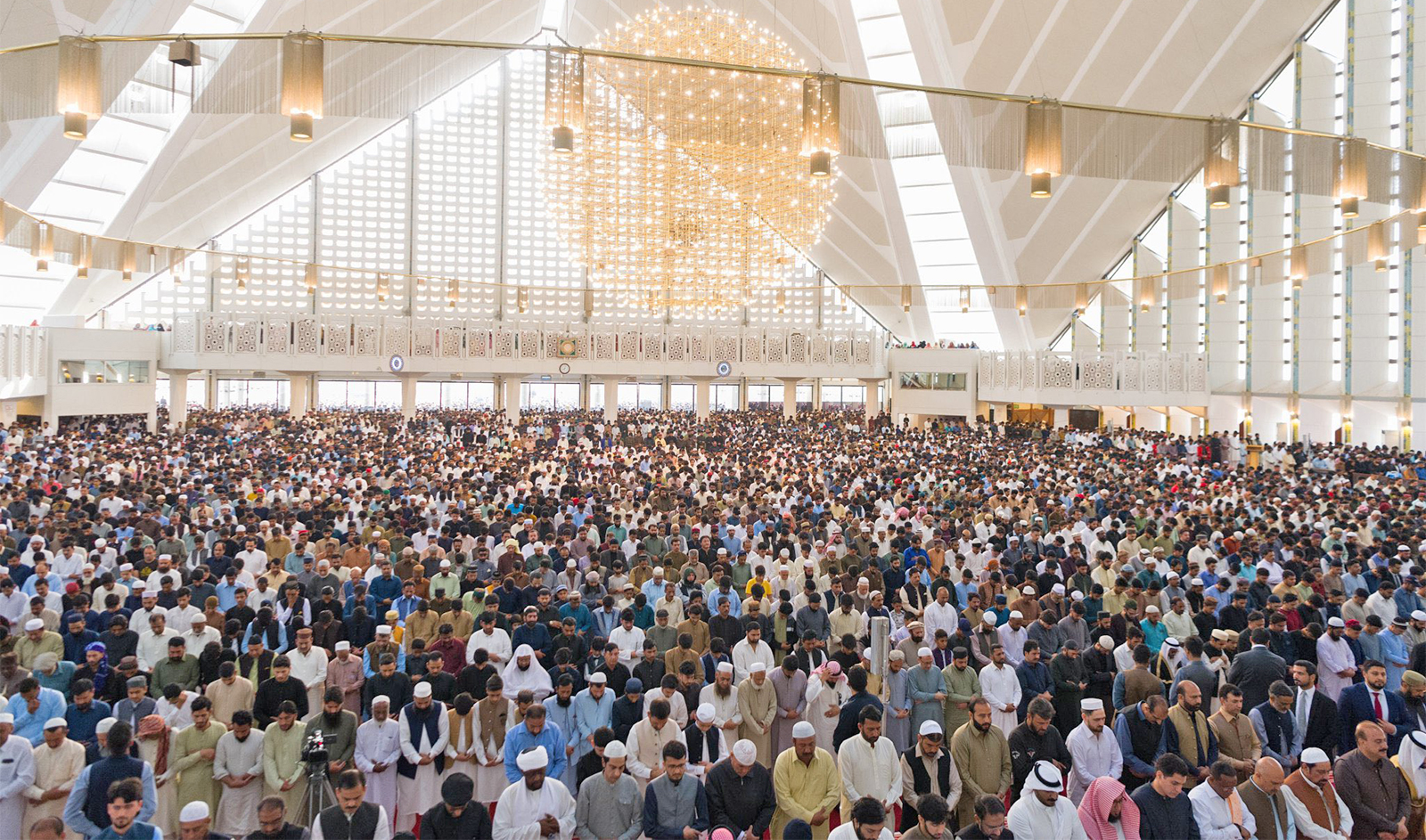
Muslim worshippers attend Eid prayers at Islamabad’s iconic Faisal Mosque in Islamabad, Pakistan on April 10, 2024. (@MWLOrg_Fr/X)
He also spoke about the responsibility of Muslims to use their actions to project Islam in its true light.
“Sheikh #MohammedAlissa points out from the pulpit of the King Faisal Mosque in Islamabad that many Muslims have made a great impact by calling to the way of the Lord through their actions rather than their words,” MWL said. “How many Muslims have corrected misconceptions about their religion and confronted the ignorant and prejudiced, through their highly Islamic behavior, meaning people read the truth of their religion through their behaviors.”
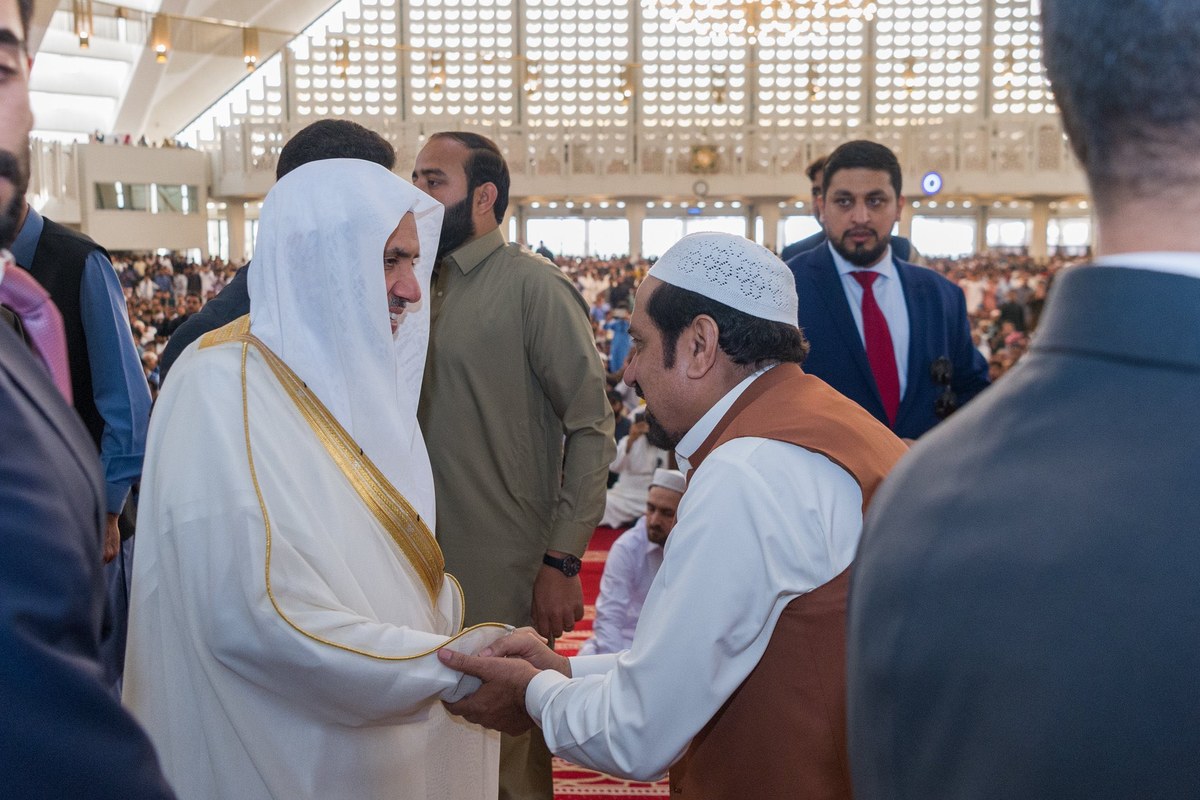
Dr. Mohammad bin Abdulkarim Al-Issa (left), the secretary-general of the Muslim World League (MWL), meets a Muslim devotee at Islamabad’s iconic Faisal Mosque in Islamabad, Pakistan on April 10, 2024. (@MWLOrg_Fr/X)
Muhammad Umer Butt, a Pakistan government spokesperson, told Arab News Dr. Al-Issa planned to spend Eid at an orphanage run by his organization in Islamabad after delivering the Eid sermon at Faisal Mosque. On Tuesday, the visiting dignitary was reported to have met President Asif Ali Zardari.
“It is his nine-day-long visit during which he will hold high-level meetings with Pakistan’s president, prime minister and minister of religious affairs,” Butt said on Tuesday.
“The MWL secretary-general will sign an MOU [memorandum of understanding] with the government of Pakistan for the establishment of a state-of-the-art Seerat-un-Nabi Museum in the federal capital,” he said, adding that Dr. Al-Issa would also perform the groundbreaking ceremony for the museum after signing the MOU on April 15.
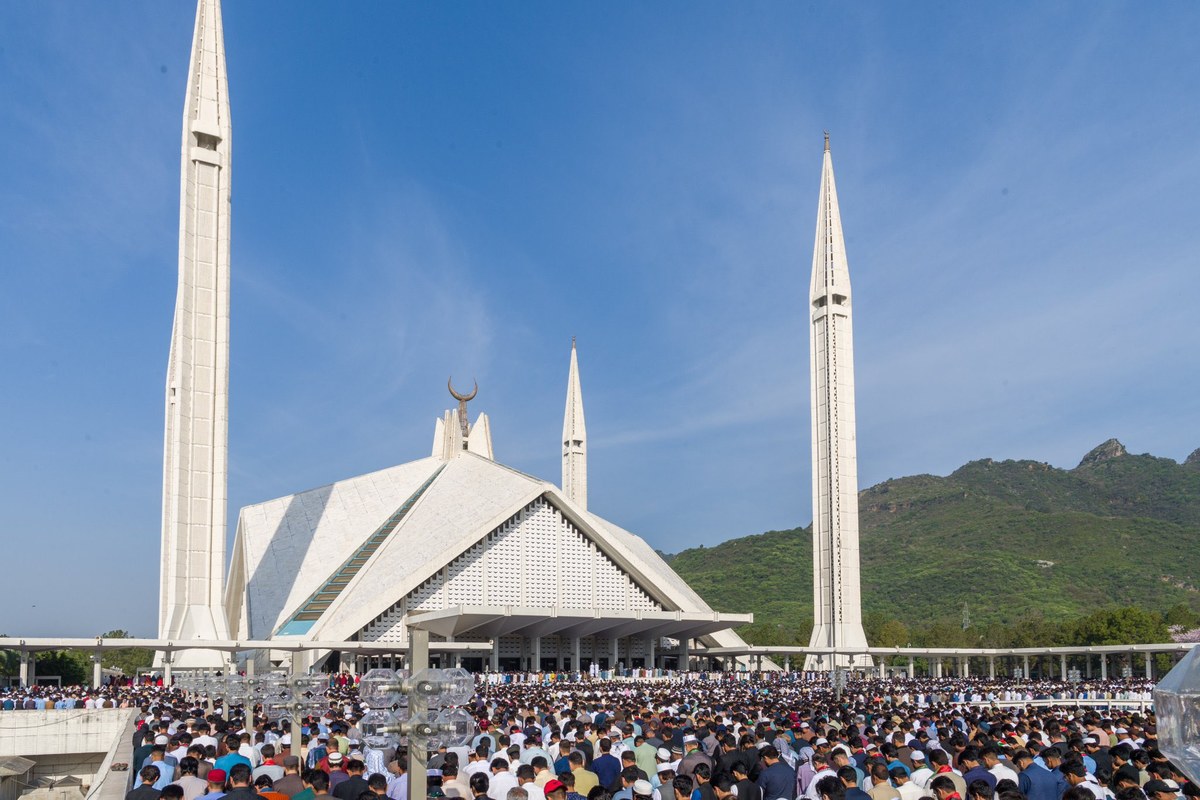
Muslim worshippers attend Eid prayers at Islamabad’s iconic Faisal Mosque in Islamabad, Pakistan on April 10, 2024. (@MWLOrg_Fr/X)
The museum will be the first of its kind in Pakistan dedicated to exhibiting relics related to the Prophet Muhammad’s (PBUH) life.
Butt said the visiting dignitary attended an iftar-dinner on Monday night at the Saudi embassy where he interacted with Pakistani cabinet members and others high-profile officials.
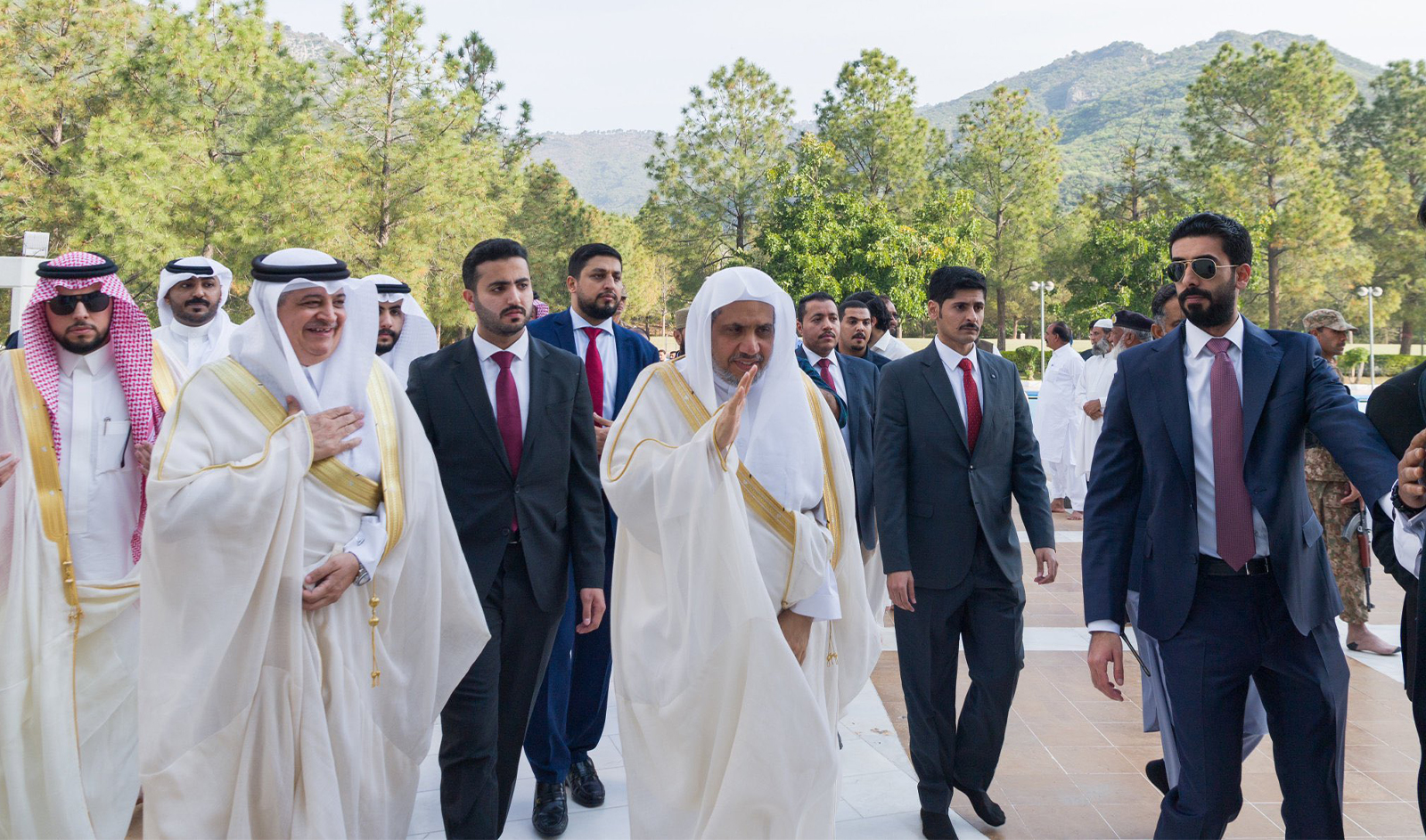
Dr. Mohammad bin Abdulkarim Al-Issa (center), the secretary-general of the Muslim World League (MWL), arrives at Islamabad’s iconic Faisal Mosque to deliver official Eid Al-Fitr sermon in Islamabad, Pakistan on April 10, 2024. (@MWLOrg_Fr/X)
According to the MWL’s Pakistan office, Dr. Al-Issa will also be the chief guest on April 13 in Islamabad at a prize distribution ceremony among young “huffaz” who have memorized the Holy Qur’an.
He will return to Saudi Arabia on April 15.
Dr. Al-Issa was conferred the prestigious Hilal-e-Imtiaz award in 2022 by Pakistan’s then president Dr. Arif Alvi for humanitarian efforts and his role in strengthening Pakistan-Saudi Arabia relations.
Dr. Al-Issa is described by the AWL as a “trailblazer” for forging partnerships among different communities, faiths and nations and is also a renowned Saudi religious scholar who has had the honor of delivering the Hajj sermon or Khutbah in 2022.
Pakistan and Saudi Arabia enjoy strong trade, defense, and cultural ties. The Kingdom is home to over 2.7 million Pakistani expatriates and serves as the top destination for remittances to the cash-strapped South Asian country.


